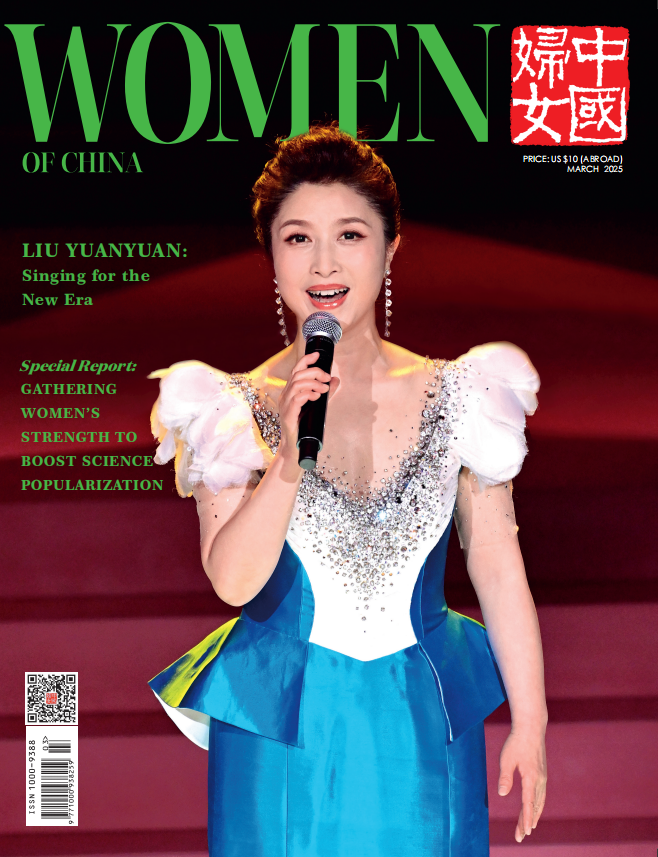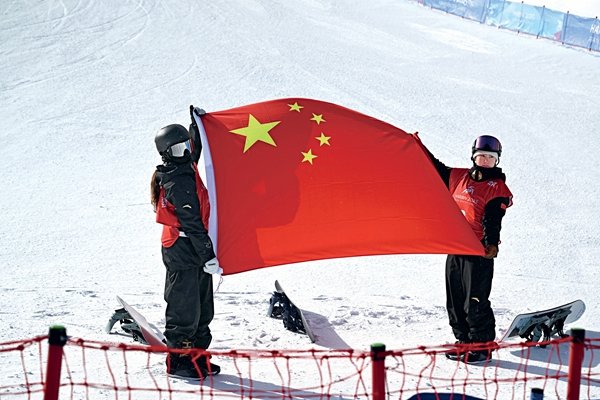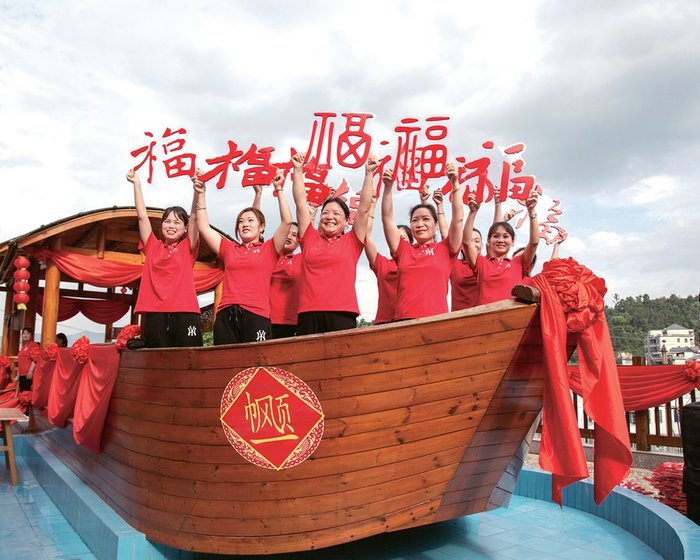Village Sport Tournaments Boom in China, Forge Closer Int'l Ties
BEIJING, Dec. 29 (Xinhua) — A little over a year ago, Rongjiang was just a little-known county in southwest China's Guizhou Province. Now, Rongjiang has made itself heard not only all over China but also overseas, thanks to the success of its village football tournament.
Organized and played by locals, the amateur football tournament has been affectionately dubbed "Cun Chao" by Chinese netizens, translating to "Village Super League." During the past summer, Cun Chao gained unexpected popularity, with an average game attracting more than 10,000 spectators.
In addition to Cun Chao, village basketball and volleyball tournaments have thrived across China, and their immense popularity has attracted even NBA stars and English Premier League representatives to visit and explore cooperation.
Rural Sport Boom
From May 13 to July 29, this year's Cun Chao saw 20 village teams clash in 98 matches. This rural spectacle attracted an audience of over one million on site, and a staggering 50 million online.
What makes Cun Chao special?
Unlike professional sports, such as the Chinese Super League, Cun Chao has a more down-to-earth style, with players coming from a variety of backgrounds. On the playfield, they are the stars, but in their lives, they are vendors, drivers, students and butchers. The prizes of pork, lamb and chicken cater to local preferences, too.
More than just a football event, Cun Chao is a cultural showcase. Throughout the match breaks, villagers dressed in traditional ethnic costumes sing folk songs and dance, creating an irresistible festive atmosphere.
With its unique blend of sport and ethnic cultures, Cun Chao has brought substantial economic benefits to Rongjiang County. During the tournament, local agricultural product sales reached 401 million yuan and nighttime consumption saw a 362.5 percent year-on-year increase, reaching 309 million yuan (43.5 million US dollars).
In Taipan Village, where the Cun BA (Village Basketball League) final was played, local tourism has boomed, with hotels and restaurants packed every day during the tournament. The sales of local rice, one of the competition prizes, increased more than 10 times in half a year.
"A series of cultural festivals and sports activities have led to the rapid development of the tourism industry in Taijiang County," said Yang Dezhao, head of Taijiang County.
In 2022, the county received more than 1.5 million tourists, achieving a tourism revenue of more than 1.8 billion yuan (251.9 million U.S. dollars). In the first three quarters of this year, the number of tourists and tourism revenue increased by 60 percent and 92 percent year-on-year, respectively.
Such changes are happening in villages across the country. In September this year, the local grassroots basketball tournament final in Liaoyuan, northeast China's Jilin, attracted nearly 10,000 people to watch.
In Xinglong Town of Guyuan City, Ningxia Hui Autonomous Region in northwestern China, an outdoor basketball court that can accommodate 30,000 people and an indoor basketball arena are packed after 6pm every day.
Nan County in central China's Hunan Province organized basketball, volleyball and badminton competitions integrated with local crayfish, graffiti village and Dongting Lake wetland elements, attracting more than 100,000 people to watch on site during China's National Day holiday.
"Whether in urban or rural settings, sports are playing an increasingly pivotal role. Sports are forging closer ties between people and cities, as well as between people and villages. This mirrors the continual progress in rural development," commented Wang Xueli, director of Tsinghua University Sports Industry Development Research Center.
International Recognition Boosts Exchanges
A growing phenomenon in China, the village leagues have also drawn significant international attention.
In September, Cun Chao and England's Premier League forged a strategic cooperation agreement during the 2023 China International Fair for Trade in Services in Beijing, in a bid to promote football at the grassroots level while integrating cultural exchanges.
On December 12, the Premier League launched the Premier Skills project in Rongjiang County with Warren Leat, the British Council's football development manager, conducting a four-day training courses for 44 local coaches.
"I hope there will be more football communication at the community level between China and the UK in the future," said Hu Zhaoheng, the Premier League's head of media sales and content partnerships for China.
Whatever the future outcome, the Cun Chao-Premier League collaboration signals a power of sport that transcends borders and bridges cultural differences.
Similarly, on the basketball court, active and former NBA stars Jimmy Butler, Allen Iverson and Stephon Marbury all paid visits to Taipan Village this summer. They played basketball with local children, interacted with spectators, sang and danced with the locals, and most importantly, watched the village basketball matches.
"I'm very honored to be here. The guys here have made a big name for themselves in China and all over the world," said Marbury.
"Their energy and excitement are different from that in America, since I've never played in front of that many people outside.
"I believe Cun BA is getting to be better, and I hope to be a part of this," added Marbury.
In September, the Washington Post published a commentary headlined: "'Village basketball' could be the new ping-pong for U.S.-China ties."
Leland Lazarus, associate director at Florida International University's Jack D. Gordon Institute for Public Policy, in the piece calls basketball a potential bridge between young people of the two countries.
"Basketball can still build bridges between U.S. and Chinese youths," wrote Lazarus.
"An old Chinese saying holds that 'the relationship between two countries is based on the affection between their people.' Perhaps two U.S. and Chinese players will soon become friends on a basketball court, then grow up to meet again at a negotiation table. Their shared experience will have laid a foundation for cooperation."
(Source: Xinhua)
Please understand that womenofchina.cn,a non-profit, information-communication website, cannot reach every writer before using articles and images. For copyright issues, please contact us by emailing: website@womenofchina.cn. The articles published and opinions expressed on this website represent the opinions of writers and are not necessarily shared by womenofchina.cn.








.jpg)

 WeChat
WeChat Weibo
Weibo 京公网安备 11010102004314号
京公网安备 11010102004314号